The content of the article
Eggs are an extremely valuable nutritious product that contains many useful substances and easily digestible proteins. Adding eggs to the diet will be very beneficial for your pet’s health.
Cats are predatory animals whose diet requires a high protein content. Nevertheless, if you feed the animal only with meat, digestive disorders are possible, which can lead to kidney and liver diseases. In this connection, various proteins must be present in the diet. When cats add eggs to food, the owner provides the pet with an additional source of protein comparable to fish and meat. Proteins that contain eggs are composed of amino acids, among which are essential for the body - methionine and lysine.
What are the benefits of eggs
The eggs also contain various minerals and vitamins, so important for the full functioning of the cat's body. The healthy state of blood vessels, joints and nerve cells will be given to a furry pet by substances such as iron, magnesium, calcium, potassium and phosphorus. However, it is worthwhile to consult your veterinarian whether it is permissible to add eggs to the cat's diet when there is an overabundance of any of these minerals in the body. Indeed, the vitamins of groups A and B contained in one egg can make up 1/3 of the daily requirement of an adult animal.
Fact! Any professional cat food contains whole eggs, as nutritionists share the importance of amino acids for cats.
Which eggs to choose
Today, quail eggs are gaining popularity. There are many myths about their therapeutic benefits in any disease. Of course, one should not exaggerate the scope of the action that this product is capable of exerting, but one cannot but note their useful properties. In terms of nutritional value, quail eggs are superior to chicken. For cats, quail eggs are slightly more valuable than chicken eggs, because they are digested faster and better. However, it should be borne in mind that a chicken egg, being homemade, will do more good for the body than a quail egg that was bought in a store.
The health risks of raw eggs
Eggs (chicken and quail) can cause allergic reactions and intolerance. Also, in both types of eggs, the content of the pathogen of salmonellosis is possible. Despite the misconceptions that quail are immune to salmonella, it must be understood that raw eggs are unacceptable for cat nutrition. Protecting the pet from eating raw eggs will protect it from the risk of infection, as well as the spread of infection among family members.
Raw egg protein removes a number of vitamins from the body, which, in turn, can lead to a lack of vitamins even with a full diet. Raw yolk will be useful, but only in the case of domestic eggs.
How to cook eggs for a cat
Eggs must be processed by boiling in water, while the use of fat for cooking is not allowed. The optimal cooking time is from 4 minutes. This is enough to neutralize the pathogens of salmonellosis. Also, this time is enough for the proteins to break down into amino acids.
How much to give the cat eggs
Eggs should not be abused, despite their undeniable value. It must be remembered that a pet needs various sources of nutrients. To maintain the balance of proteins, vitamins and minerals obtained by the cat, you should diversify the diet. Do not feed the cat with eggs daily. The norm for an adult cat is 1-3 eggs per week. Exceeding this norm is not recommended. Cats of miniature physique, or growing, need 1 egg per week. In this case, it is advisable to divide it in half, into two doses. An egg should be introduced into the diet of small kittens when they get used to cottage cheese and meat, from about the age of 1.5 months.
Egg shells will also be beneficial for the cat's body, as they are a valuable source of minerals. The shell is crushed into powder, which should be added to any food up to 3 times a week. Enough at the tip of the knife. Such an additive has a contraindication for use with a tendency to urolithiasis.
Contraindications to the use of eggs by cats
Despite the benefits of this product for a feline organism, in some cases it should be limited to use partially or completely:
- Individual intolerance and allergic reactions.
- During pregnancy and feeding - in limited quantities, since an excess of eggs in the diet can negatively affect the health of kittens.
- Raw yolk is prohibited for use by kittens up to 6 months old, pregnant and lactating cats, as well as cats with chronic diseases.
- With caution - with diseases of the kidneys and gall bladder.
- The yolk is completely excluded with urolithiasis of the phosphorus type.
- With caution in diseases of the heart and blood vessels, since an overabundance of eggs can lead to an increase in blood cholesterol levels.
If cats have any diseases, the introduction of eggs into the diet with a veterinarian should be coordinated. Returning to the answer to the question about the use of raw eggs, it is worth noting that the digestibility of such eggs is much lower than that of those who underwent pre-treatment. Therefore, you should opt for boiled eggs, which will bring the greatest benefit to the cat's body.
Video: how to feed a cat


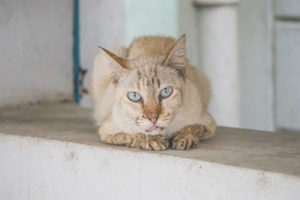


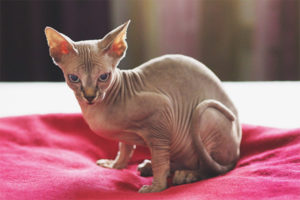
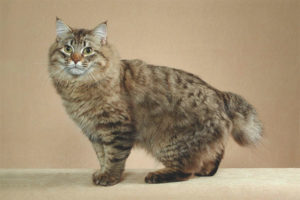
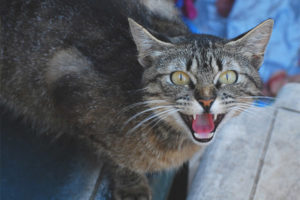
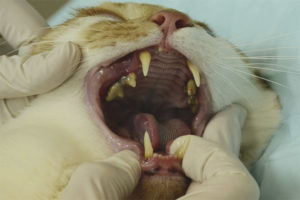
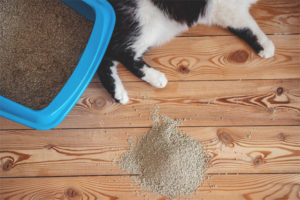
Submit